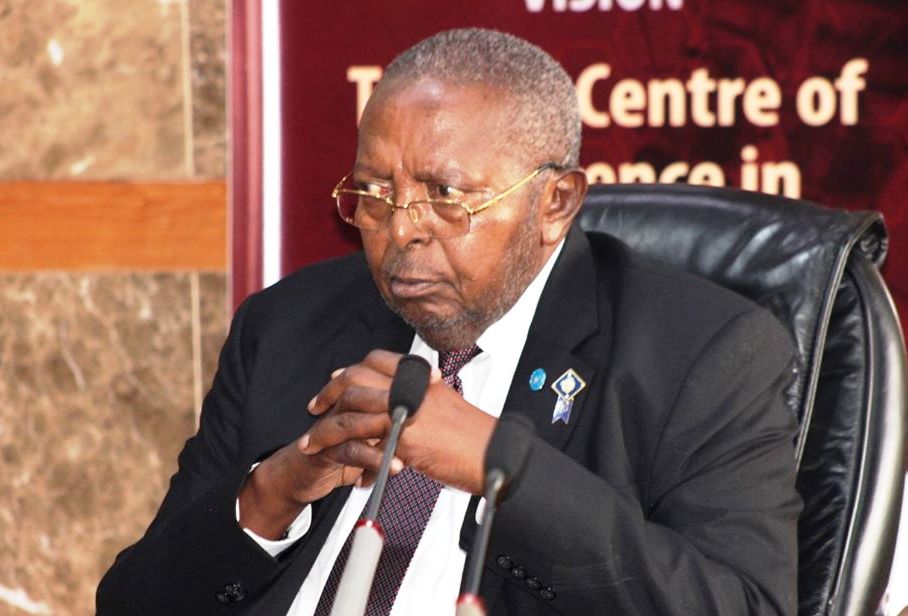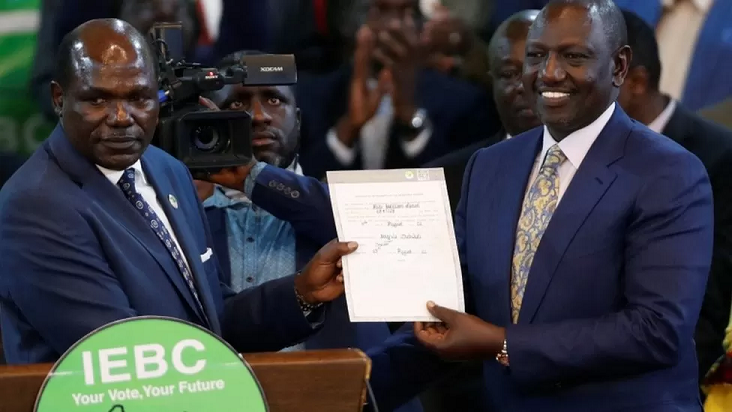By Sam Evidence Orikunda
I remember reading a story somewhere of an old man who would send grandchildren (Bazukulu) to pick ripe mangoes and later bring to him.
He would pick all the ripe mangoes for himself and leave the raw mangoes for the children.
Even when the young ones, would have taken time to get those mangoes from trees and therefore deserving a share on the sweetness of the ripe mangoes, the old man didn’t mind about that.
Children are vulnerable human beings that deserve to eat more than the elder for them to grow.
When we were growing, my parents and other people’s parents because I saw them, took care of the children more than themselves.
Even when a mother would be preparing food that takes long time to get ready e.g dry beans, they would make sure that something simple is prepared aside for the children, so that in case food delays, the child would have something to eat.
It’s the elders that made sure that food is available for the young ones. Our grandparents frequently reminded our parents to make sure something is available for the children to eat.
For us who were a bit old always admired to be children so that we can get a share of the soft life which the young ones were enjoying.
In fact, if you were craving for some kind of food like meat, you would go through the baby or the child to ask for that food, because you would be sure that whatever a child asks is granted to them by parents.
In Uganda, we seem to be doing different of that. It’s the old men and women who the Government is taking care of instead of the vulnerable youth.
Whereas the young people struggle to make ends meet, old men and women have everything available for them, including life insurance.
The elders choose to live a soft life at the expense of the young people who they now address as “Bazukulu”.
The young people who are supposed to be dependants are instead being depended on.
Once a youth decides to start a business they will pay huge taxes to the Government which is in the hands of elders, this is a direct feeding of Bazukulu to their Jajas as opposed to how things should be.
Each time I’m in the village, I meet old men who tell me that “Orume rwakura ruronka abaana barwo” when a rabbit gets old, it starts breastfeeding on its young ones.”
Meaning the children take care of the elders. However children do so because parents surrender whatever they’ve to them and the children use it to make money and use that money to take care of the elders, since the elders will not be having energy to work. Of course, it would be difficult for the children to do so if they had nothing to use.
In Uganda, the youth or Bazukulu are described as special interest groups, meaning there’s something special about them.
However, even when they’re described as special interest groups, they face more challenges than the elders.
For instance, if a Youth declares to stand in an election, they spend the equal amount of money that the elders spend and sometimes even more. The youth, just like elders must pay nomination fee similar to what elders pay and they must face the campaign costs that the elders pay.
This means that the dreams of the youth still lies in the hands of the rich elders, because for you to manage a campaign you must be having someone to sponsor you, and it’s not a guarantee that you will visit his office, or give him a call requesting for his support and he accepts to do as you’ve requested; one must be related to that person or having some acquaintance. That’s how those who don’t have the connections are dying with their dreams.
A jaja or old man, who hides in the kitchen to “Steal” food which is meant for Bazukulu or young ones can never be respected by the Bazukulu “Children”.
In Rukiga, we describe them as “abanyanda” or “Endiira kukinduka” in English it is glutton, or greedy human beings.
Some of the meanings of these words are fit to describe most officials in the current Government and elders.
In a normal life, an elder must forego food if the children have not eaten, that do not only show responsibility but it shows love and care.
Any parent who does that to his children automatically wins the respect and love of those children.
In Uganda, it’s the opposite; someone feeds on the food of Bazukulu but still demand respect from them, they will hold a microphone and tell you how they deserve your respect if you are not ready to respect them you may go to Prison.
That’s not caring about Bazukulu but torturing them and tormenting them, nobody can ever love anyone who is tormenting them, you get attention from someone when you do compassionate things to them, then the person may take time to know who is this person who cares about me like this and why? And the friendship begins right from there.
I do not reject being called a muzukulu and other youth don’t reject it too, but it should come with responsibility not mere word. For the few years I lived with my grandparents before they died, it would be feasting each time I visited them, in fact if I visited my grandparents and fail to finish food from the plate I would be in serious trouble. My grandmother always made the plate full of food and it was mandatory for me to finish that food and add a cup of Bushera (Porridge). This made me and other grandchildren so closer to our grandparents.
Our minds were made to know that our hunger problems were always solved by our grandparents.
Even when parents disturbed, you would tell them, “I will go to Kaaka’s or Nshwenkuru’s place. However, we seem to have turned the word “Bazukulu” into a trade mark in the Politics of today, it’s as if, it’s the strategy to Sweet talk the youth and hoodwink them that they’re cared for. It would be more meaningful if the name came with responsibility of knowing the problems which the youth are facing and find answers to those Questions.
In the past, when the things happening today happened, the youth then, ‘now our Jajas’ got bad manners and went to the bush to fight the then Government, in fact that was beyond bad manners, it was criminal because if they were caught, they would be charged with treason. That decision led to the death of thousands of people including the youth. We must applaud the youth of Uganda today because none of them has taken that decision, the Youth suffer in silence, a few speak out and the rest keep Quiet, after all they live under fear because once one does something similar to what the Bazukulu of 1980s did, you will be picked given a number of Kiboko and sent home. You’re at the same time warned of a terrible suffering if you keep big headed. That has kept a number of the youth Quiet, not because they’re happy but because that’s the option available for them. However people, who have got expertise of such situations, say such fear has expiry date and once that expiry date reaches, the person won’t be fearing anything, they will become desperate and therefore taking whatever comes, whether death or prison or life.
We are now forced, to respect people who are tormenting us and psychologically torturing us. Being our elders, it’s a must that we must bow each time they appear and put knees down before them, so they will say “Well done Muzukulu” if you raise your voice against something whether correct or wrong you must be sidelined, or beaten or be arrested. But what’s wrong with giving advice to an old man who you clearly see that he is wrong? I thought in the African societal setting, an old child can advise the father on how the affairs of the family can be run and the father must take the advise for the good of that family, if it’s rejected, the family may face challenges, however I’m not saying that the advice given by the Children shouldn’t be scrutinized and analysed to see how relevant and correct it is.
The writer is an aspiring western Youth Member of Parliament





